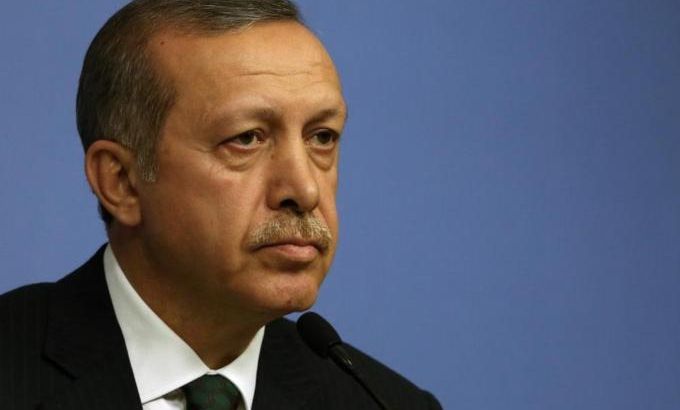
Erdogan: Turkey’s role in the Middle East
The Turkish prime minister shares his views on the war in Syria, the coup in Egypt and relations with Israel and Iran.
Recep Tayyip Erdogan is one of the world’s most prominent leaders.
Loved by millions and disliked by millions more, Turkey’s prime minister does not shy away from controversy.
Turkey is much more free than almost all of the EU member countries. Now you're talking about the Gezi Park incidents .... Why do you ignore the incidents that took place in Frankfurt, Germany? Just recently, incidents took place in Hamburg. Why don't you see the incidents in Hamburg? You have seen what the police have done there.
And although the spotlight rarely shifts away from Erdogan, it is not often that he sits down and talks to the international media.
But as his ruling AK Party gets ready for local elections next month in what could prove to be the most difficult poll it has contested since coming to power in 2002, Erdogan talks exclusively to Al Jazeera about all the hot topics.
From the 2013 Gezi Park protests and recent corruption cases that have rocked his government to the new internet law introduced by parliament, he gives his response to accusations that he is making Turkey more authoritarian.
“Our government is absolutely not a government of corruption. This is slander. And those who sling this slander will pay the price and also, those who are the subject of this slander would pay the price within the confines of law,” he says.
Under Erdogan’s leadership, Turkey’s role in the Middle East has grown increasingly significant. He is considered one of the most influential people in the region.
In this interview, Erdogan expands on a number of issues, clarifying his country’s position at length.
He gives us his take on the war in Syria, which is nearing its third anniversary with no end in sight, and talks about the peace negotiations in Geneva, saying: “Unfortunately Geneva II is not going well. And the officials of the [Syrian] regime at Geneva II only elected to bad mouth certain countries as they saw fit.”
“Today, neither Bashar [al-Assad] nor those with him have either the right or authority to insult anyone. They are not able to rule Syria. They have sunk Syria. They have darkened the future of millions, tens of millions of people in Syria. They have lost their humanity to such an extent that they are not allowing the passage of humanitarian aid,” he adds.
Erdogan also explains why he has been one of the staunchest opponents of the military coup in Egypt, and sheds light on the recent warming of relations between Ankara and Tehran.
And on Israel, the prime minister spells out what is needed for diplomatic relations to be restored.
In a two-part special, we talk about local and international politics with Turkey’s Prime Minister Recep Tayyip Erdogan.